|
The cold weather of winter is rapidly approaching.
Soon, the remaining trees and flowers will dry up and go dormant.
The Payson Lake has already lost nearly all of its algae, and
there are few ponds left in the area that have not dried up since
the monsoon ended early this month. A trip to the East Fork of
the Verde River was in order! Located about 4 miles north of
Payson, the slow moving creek still had a few green patches of
hair like algae to be found. That is the richest hunting ground
for aquatic life - the short green hair like strands in a moderately
aerated enviornment. Samples were taken from several locations,
the best being a slow moving section that had near shore growth
within reach. Some of the most amazing life forms I have yet
seen under the microscope were found! The algae was full of
life and many very peculiar types were seen. All life was returned
after imaging to the aqueous environment.
Click
on these thumbnails for the full size image:
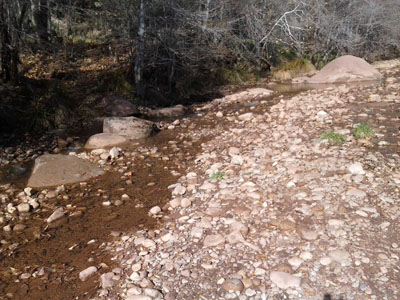 |
Here
is the location - Down the turn off to the right to the Verde
River parking area. |
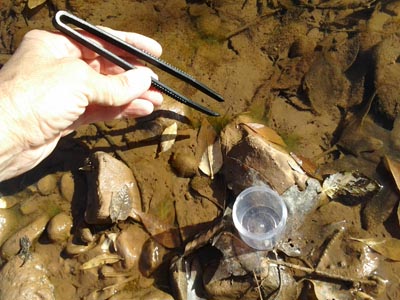 |
Using
my 3D printed forceps (!), I am collecting the green hair like
strands you see here just above the bottle. |
60x Images:
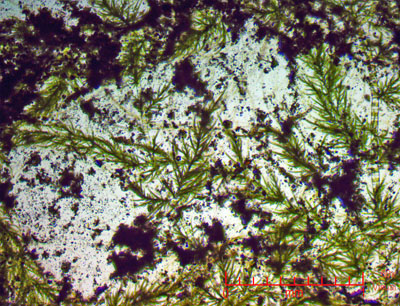 |
Here
is what I saw at low magnification in a standard transmitted
light image. The algae is branched and tree like surrounded by
organic debris and a lot of small swimming protozoans were zooming
by. There were a few larger shrimp like things, but I could not
catch them! |
 |
The
same scene with Dark
Field Illumination.
All the dark areas were moving with tiny micro animals. You can
again see why dark field is such a great way to image. |
 |
This
tiny 2 mm long nematode was spotted crawling in the algae strands.
I was able to scoop him up with an eyedropper, and hold it still
by putting a cover slip over him to restrain him but not injure.
It has very complex detail inside its transparent body. When
it moved in water it swam with a "S" like motion as
a snake might swim. As soon as it touched the algae, it now stopped
and slithered through the strands in an apparent intelligent
fashion. Not bad for an animal with only a few hundred brain
cells! |
150x Images:
 |
I
can still use the dark field stop at this magnification. The
view is totally amazing to me. The algae looks like tiny water
ferns. There was so much action here! I tried to make a movie
clip, which I may post. Protozoans were swimming everywhere.
|
|
Movie
1 |
The
movie is here on Youtube on my channel. This is at 150x and you
can see it is like a hive of bees so busy with protozoans! |
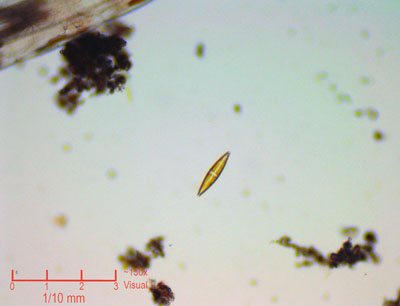 |
This
small slowly swimming diatom like shape was pretty common once
I started looking around. Many of them would swim in different
directions criss-crossing all over some of the fields. |
 |
At
150x, the nematode is awesome! Here is the head region. Here
the tentacles around the mouth are seen and several internal
organs can be visualized as well. Two nerve cords go down the
sides of the body as you will see better later. Nematodes have
what is known as a nerve cord brain. Instead of a swelling in
the head region, the brain cells are distributed in a line along
the animals body. Amazing! |
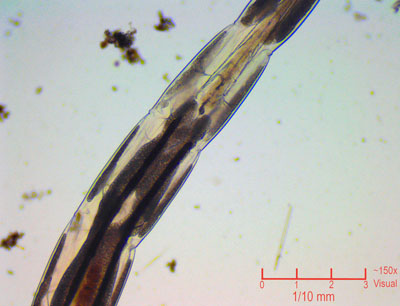 |
Closer
to the center of the body, nerves and what appears to be digestion
of organic matter is seen. |
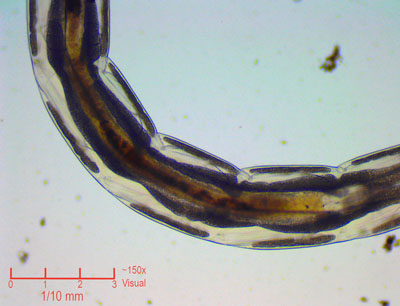 |
The
internal food tract, and nerves. |
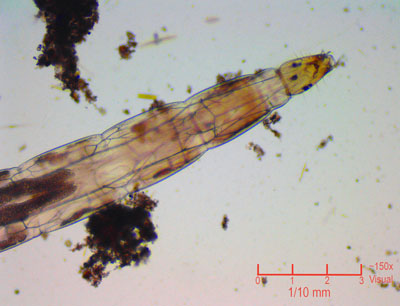 |
The
tail is amazing. Look at those gorgeous nerve cords running down
its sides. Its like an X-ray to the mind of the animal. I must
build a robot someday like this! |
600x Images:
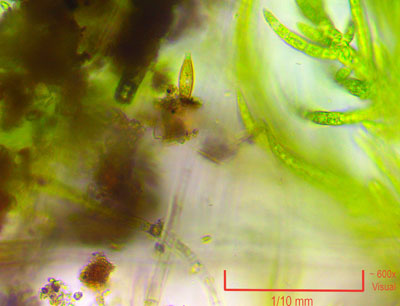 |
Just
above center is a spindle shaped protozoan. This type was seen
flittering about amongst the branches of the algae like a small
bird looking for food. |
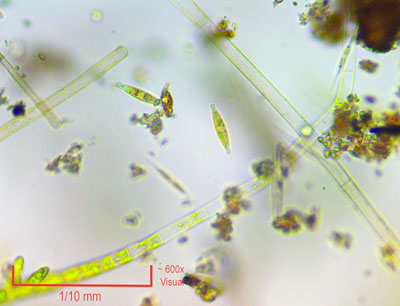 |
Several
other types of small spindle shapes moving slowly along. They
have excellent internal details! |
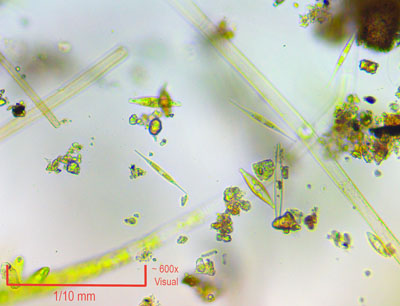 |
Several
VERY narrow spindles. These swam slowly as well, and were like
spears knifing through the medium. |
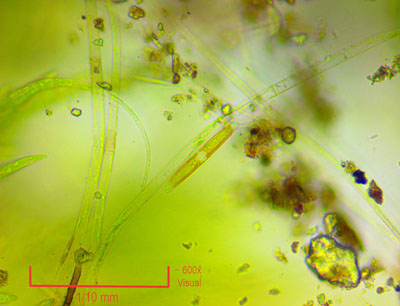 |
Right
in the center was this elongated swimming log shaped animal.
On the left are smaller protozoans. |
 |
The
head of the nematode was full of detail at this magnification.
Since the gullet is seen as a ghostly tube coming in from the
tentacles, I assume the clusters of spheres are digestive in
nature. |
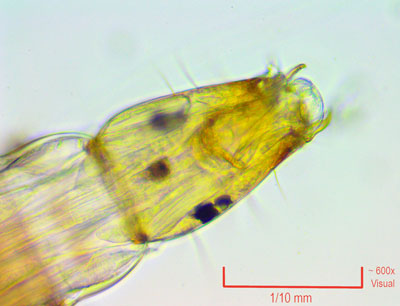 |
The
tail of the nematode has hooked appendages. You can also see
tiny sensory hairs as well. |
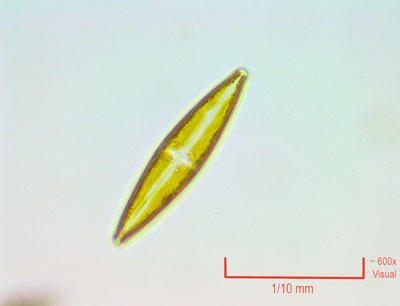 |
Close
up of one of the spindles with interesting detail inside. I was
tempted to try to get the 1500x on it, but it was moving along
too fast to capture. How does it swim? |
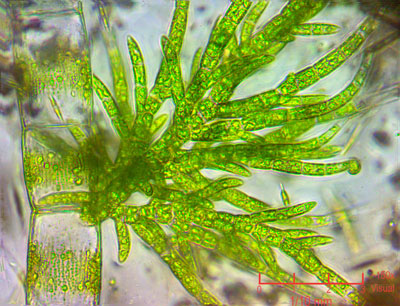 |
The
small branching algae is seen attached to a larger more barell
shaped strand with amazing details inside. |
|
Camera: 10 Megapixel CMOS Platform: AmScope Trinocular 40x - 2000x Filters: NONE Location: Payson, AZ Verde River Elevation: 5100 ft. Processing: Photoshop CS Pro HOME


















